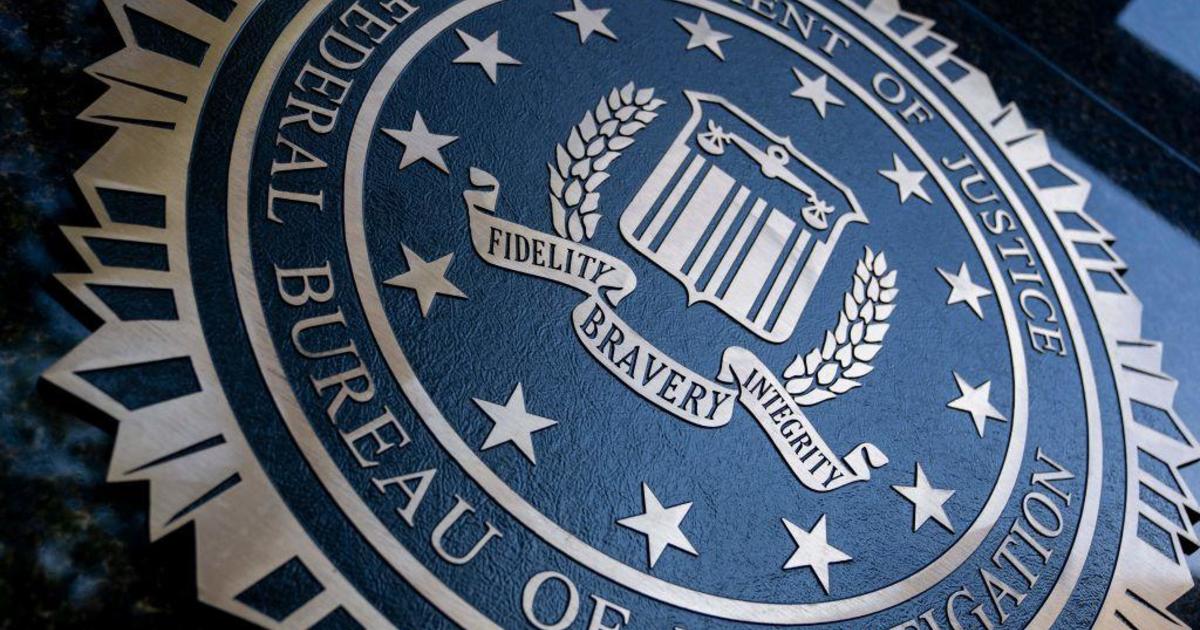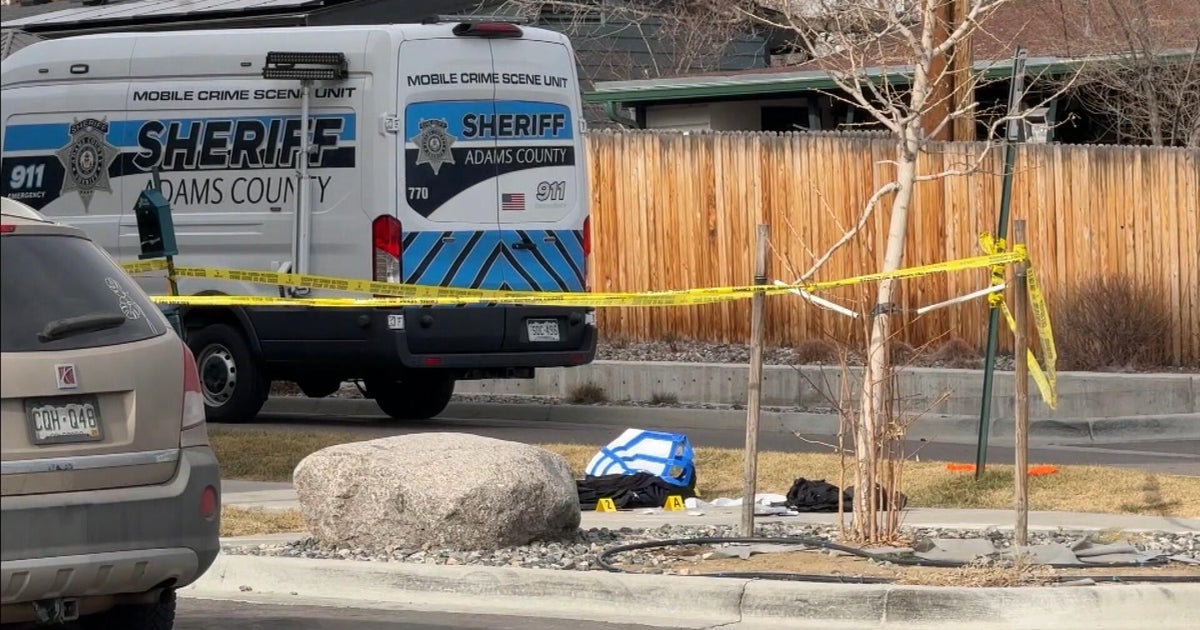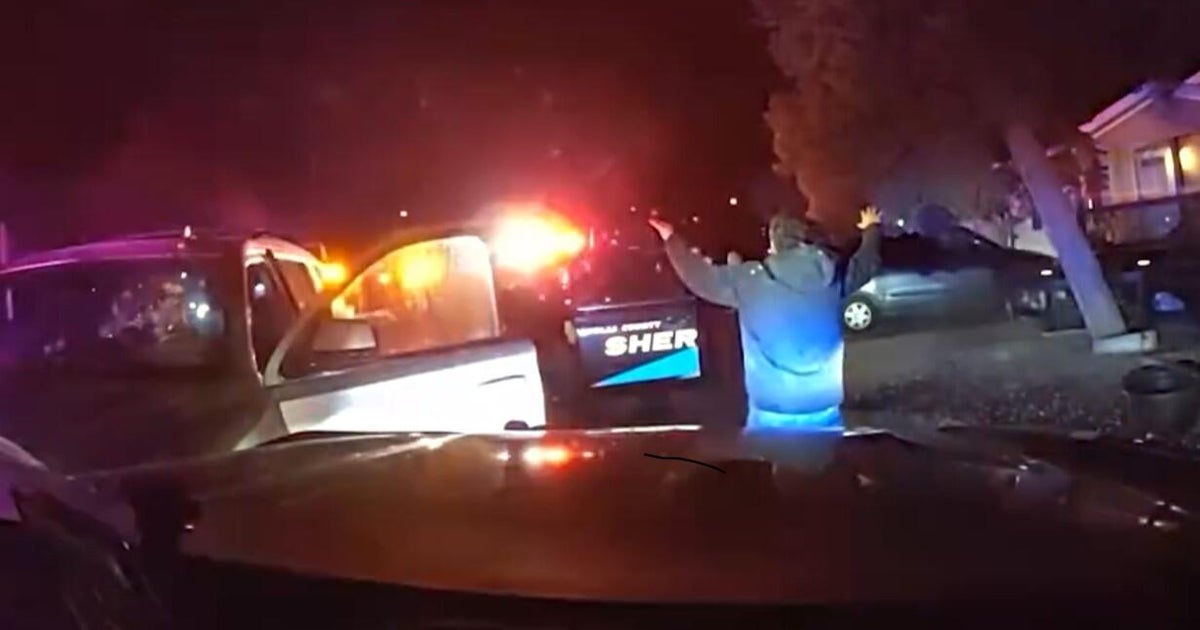Peter Strzok worked as the leader of the Rigged Witch Hunt for a long period of time - he got it started and was only fired because the gig was up. But remember, he took his orders from Comey and McCabe and they took their orders from you know who. Mueller/Comey best friends!
Lawmakers Grill Deputy Attorney General, FBI Director Over Documents
(CBS News) -- During the latest congressional hearing into actions by the Justice Department and FBI surrounding the 2016 election, Deputy Attorney General Rod Rosenstein was forced to defend himself against harsh criticism from lawmakers that the DOJ has been lax in their ability to turn over sensitive documents related to a variety of investigations.
While much of the questioning revolved around the DOJ's inspector general's report which criticized the leadership and judgement of both departments during their handling of the Hillary Clinton email investigation, both FBI Director Christopher Wray and Rosenstein were pressed on the DOJ and FBI's willingness to hand over documents to congressional investigators as part of their probes into circumstances surrounding the 2016 election. Wray and Rosenstein argued that their departments are dealing with massive volumes of oversight requests.
"As a result of President Trump's commitment to transparency, the FBI is making unprecedented disclosures to the Congress, including granting access to hundreds of thousands of pages of investigative information, and thousands of pages of classified documents," said Rosenstein.
Wray meanwhile, argued that the FBI was working to make witnesses available, answer questions and provide an additional 880,000 pages of documents to lawmakers.
But in a particularly heated exchange with Rep. Jim Jordan, R-Ohio, Jordan accused Rosenstein of having personally redacted items relating to ongoing investigations as well as claims that Rosenstein was not complying with Congressional requests, saying, "you have seven days to get your act together."
Jordan was referring to a resolution on the House floor threatening to hold Rosenstein in contempt. The measure ultimately passed following their back-and-forth in a 226 to 183 vote -- demanding that the Justice Department fully comply with all document requests from the House Intelligence and Judiciary Committees by July 6.
"Mr. Jordan, I am the deputy Attorney General of the United States, okay? I'm not the person doing the redacting. I'm responsible for who's responding to your concerns as I have. I have a team with me, sir. It's just a fraction of the team that's doing this work, and, whenever you brought issues to my attention, I have taken appropriate steps to remedy them. So, your statement that I am personally keeping information from you, conceal information," Rosenstein said.
"You're the boss, Mr. Rosenstein," Jordan retorted. "That's correct, and my job is to make sure we respond to your concerns. We have, sir," Rosenstein responded.
Rosenstein added, "When you find some problem with production or with questions, it doesn't mean that I'm personally trying to conceal something from you. It means we're running an organization that's trying to follow the rules."
Highlights of Thursday's hearing
Political Bias
Chairman Bob Goodlatte began his opening remarks at the hearing saying the DOJ IG report revealed "bias in top echelons in the FBI during a hotly contested president election and revealed agents, lawyers and analysts held profound bias against Donald Trump and in favor of Hillary Clinton."
His comments come as Strzok participated in an over 11 hour-long interview before a closed meeting of the House Judiciary and Oversight and Government Reform Committees on Wednesday. Text messages exchanged between Strzok and fellow FBI official Lisa Page showed contempt for Mr. Trump throughout the Clinton email probe. The two were also assigned to work on the special counsel's probe into Russian interference in the 2016 campaign, but were removed when the texts were discovered.
President Trump tweeted Thursday morning that Strzok had initiated and worked as the "leader of the Rigged Witch Hunt for a long period of time" claiming that he was "fired because the gig was up." While Page has since left the FBI, Strzok is still employed at the FBI while the disciplinary process plays out.
Goodlatte urged the DOJ and FBI to "hold people accountable" as a result of the report's finding and prevent similar events from ever happening again.
Rosenstein: "This is not a happy occasion"
Rosenstein in his opening remarks, said there's "nobody who would be more committed to rooting out abuse and misconduct when theres credibly evidence that occurred" than himself, calling the hearing "not a happy occasion" for him. "The Department of Justice is not perfect. We will keep working to make it better, and we welcome your constructive assistance," said the deputy attorney general.
Rosenstein said in 2016, many at the DOJ "deviated from important principles" and that "everyone knew about some of those departures when they occurred such as discussing criminal investigations and encroaching on prosecutorial decisions. We learned about others through an internal investigation – such as leaking to the news media and exhibiting political bias."
"We ned to correct errors, hold wrongdoers accountable and deter future violations," added Rosenstein.
Wray meanwhile, repeated much of his previous testimony from his appearance before the Senate's panel. He noted in his remarks that "Although the report did not find any evidence of political bias or improper consideration actually impacting the investigation under review, the report did identify errors of judgment, violations of or disregard for policy, and decisions that, at the very least, in hindsight, were not the best choices."
Jordan v. Rosenstein
In a particularly heated exchange with Rep. Jim Jordan, R-Ohio, Jordan accused Rosenstein of having personally redacted items relating to ongoing investigations as well as claims that Rosenstein was not complying with Congressional requests, saying, "you have seven days to get your act together." Jordan was referring to a resolution on the House floor threatening to hold Rosenstein in contempt. The measure passed following their back-and-forth in a 226 to 183 vote, demanding that the Justice Department fully comply with all document requests from the House Intelligence and Judiciary Committees by July 6.
"I've heard you make those kind of allegations publicly on TV. Mr. Jordan, I am the Deputy Attorney General of the United States, ok? I'm not the person doing the redacting, I'm responsible for responding to your concerns, as I have...whenever you brought issues to my attention I have taken appropriate steps to remedy them," said Rosenstein.
He added, "When you find some problem with production or with questions, it doesn't mean that I'm personally trying to conceal something from you. It means we're running an organization that's trying to follow the rules."
Rosenstein pushed back further, saying, "I appreciate your concerns, but your use of this to attack me personally is deeply wrong." Jordan continued to press Rosenstein, saying that media reports claim that the deputy attorney general had threatened staffers on the House Intelligence Committee by threatening to subpoena phone calls and emails.
"No sir, and there's no way to subpoena phone calls," Rosenstein replied.
Jordan then grilled Rosenstein about the testimony Wednesday of Strzok, on what questions he did and didn't answer, under advisement of FBI counsel. The Ohio congressman complained that Strzok couldn't answer the question of whether he'd ever communicated with Glenn Simpson, head of Fusion GPS
"I appreciate your saying it's not personal. Sometimes it feels that way. How do I know, sir? You interviewed Mr. Strzok, I didn't."
Jordan: "He works for you. Doesn't work for us."
"There are 115,000 people who work for me, sir," Rosenstein retorted. "You should believe me because I'm telling the truth and I'm under oath."
"We are not in contempt of this Congress and we are not going to be in contempt of this Congress," Rosenstein later urged.
Next Steps
Rosenstein testifed that at the DOJ, mandatory annual training will include lessons from the IG report and they are also considering other recommendations to put in place.
"We already revised the confidential policies to emphasize non-public sensitive information is protected from disclosure. We intend to enforce that principle on our employees and demonstrate that respect ourselves," he added.
Document requests
Both Wray and Rosenstein addressed ongoing criticism from lawmakers that their departments are not following-through with numerous document requests related to a variety of investigations. Wray and Rosenstein argued that their departments are dealing with massive volumes of oversight requests.
"The FBI is managing an extraordinary volume of congressional oversight requests, some of which seek details about criminal investigations and intelligence sources. As a result of President Trump's commitment to transparency, the FBI is making unprecedented disclosures to the Congress, including granting access to hundreds of thousands of pages of investigative information, and thousands of pages of classified documents," said Rosenstein.
Wray meanwhile, argued that the FBI working to make witnesses available, answer questions and provide an additional 880,000 pages of documents to lawmakers.
"Although we've now substantially complied with the majority of subpoenas," Wray said his department is "determined to get through outstanding items." The FBI has increased staffing devoted purely to submitting to those document requests, saying that 100 employees are working "day and night, through the weekend to collect, review and process thousands of additional pages."
Committee Oversight
Ranking Member Rep. Jerry Nadler, D-New York, slammed Goodlatte for calling an emergency hearing for the IG report's findings, and not on more pressing issues for the committee to provide oversight on, like the administration's "zero tolerance" policy at the U.S. border.
"Have we conducted any oversight at all on election security? The administration's failure to protect DREAMERs?" Nadler asked in his remarks. "On all other issues the committee stays silent -- on Hillary Clinton's emails, sound the alarms," he added.
Nadler said that the committee is wasting "precious time" to "chase Hillary Clinton yet again."
Rosenstein recusal
Pressed by Rep. Ron Desantis, R-Florida, if the deputy attorney general should be recused form the Mueller probe, Rosenstein said, "I can assure you, were it appropriate for me to recuse myself, I'd be more than happy do so, but it's my responsibility to do it." Much to Mr. Trump's frustration, Attorney General Jeff Sessions recused himself from the investigation. Despite the president's clear disapproval with the move in repeated public attacks, Sessions has said he believes he made the right decision in recusing himself.







